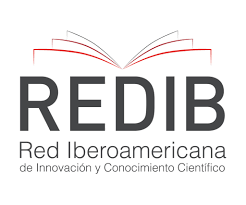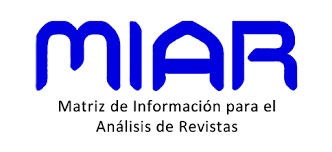Romano Guardini and Europe
DOI:
https://doi.org/10.51743/cpe.48Keywords:
Romano Guardini, Europe, PowerAbstract
This brief work presents Guardini's relationship with Europe. For our author Europe was not only a subject of study but also, and very early, a response to a situation and personal conflict. We articulate our writing in two parts. The first one will deal with the biographical implications of the reality of Europe in our thinker. The second one will analyze the content of some thematic writings. Be in the first part as in the second we can see that Guardini is a model European, whose existence is shaped by the reality of Europe from a biographical, religious and fundamentally cultural point of view. That is why his thought and also his life can only be understood and interpreted objectively in the light of the reality of Europe.
Downloads
References
R. GUARDINI, “Europa: realidad y tarea” en Obras. Vol.1 Ediciones Cristiandad, Madrid, 1981, 13-27.
R. GUARDINI, “Europa y cosmovisión cristiana” en Escritos políticos, Palabra, Madrid, 2010, 91-120.
R. GUARDINI, “El salvador en el mito, la revelación y la política” en Escritos políticos, Palabra, Madrid, 2010, 27-88.
H. B. GERL FALKOVICH, Romano Guardini. La vita e l’opera, Morcelliana, Brescia, 1988, 106-107.
R. GUARDINI, El ángel en la divina comedia de Dante, EMECE, Buenos Aires, 1961.
Zucal, S., Romano Guardini: un ethos per l’Europa, disponible en: http://confini.blog.rainews.it/2018/02/22/romano-guardini-un-ethos-per-leuropa-un-testodi-silvano-zucal/ [Consultado el 17/07/2018].
R. GUARDINI, Cartas del lago de Como, EUNSA, Pamplona, 2013.
LÓPEZ QUINTÁS, Romano Guardini. Maestro de vida, Palabra, Madrid, 1998, 183.
R. GUARDINI, Una ética para nuestro tiempo, Cristiandad, Madrid, 2002, 109.
R. GUARDINI, La muerte de Sócrates, Palabra, Madrid, 2016, 29.
R. GUARDINI, “El ocaso de la edad moderna” en Obras, Vol. 1, Cristiandad, Madrid, 1981, 37.
R. GUARDINI, Mundo y persona, Encuentro, Madrid, 2000, 14.
R. GUARDINI, La cuestión judía, Editorial Sur, Buenos Aires, 1963.
VI Congreso de Católicos y Vida pública: “La tarea de Europa y la crítica del poder”, en Actas del VI Congreso Católicos y vida pública: Europa sé tú misma. 19, 20, 21 de noviembre de 2004, Universidad San Pablo – CEU de Madrid, pp. 441 y siguientes.
FAYOS FEBRER, R., “Bioética personalista en el pensamiento de Romano Guardini”, Cuadernos de Bioética XXV 2014/1ª, pp. 159-168.
FAYOS FEBRER, R., “Bioética, educación y poder. Una reflexión desde el pensamiento de Romano Guardini” en El mejoramiento humano avances, investigaciones y reflexiones ética y políticas, César Ortega Esquembre et Alii (Editores), Comares, Granada, 2015, 661-670.
R. GUARDINI, “El poder. Una interpretación teológica”, en Obras. Vol.1 Ediciones Cristiandad, Madrid 1981, 170.
Downloads
Published
How to Cite
Issue
Section
License
The author reserves the rights (copyright) of the published works, and the journal encourages and allows their reuse, from the preprint. The works are published in the electronic edition of the journal under a license "Creative Commons Attribution / Attribution-NonCommercial 4.0 International Public License - CC BY-NC 4.0", and can be copied, used, disseminated, transmitted and publicly exhibited.
The author / s partially transfer the property rights (copyright) of this work for the printed and online editions, provided that:
- The authorship and original source of its publication (magazine, publisher and URL of the work) is cited.
- Are not used for commercial purposes.
- The existence and specifications of this user license are mentioned.
It also declares to have respected the ethical principles of research and to be free from any conflict of interest.
"C.P.E." encourages the authors and the scientific community to the maximum promotion and dissemination of the works in their final version through:
1) Your list of contacts (emails) and social networks (Facebook, Twitter, LinkedIn ...).
2) Institutional repository of your University and public repositories (Mendeley, Cosis ...).
3) Scientific social networks (ResearchGate, Academia.edu, Kudos ...).
4) Personal or institutional website, blog, etc.
5) Google Scholar, ORCID, ResearchID, ScopusID, Dimensions, PlumX ...
6) Printed copies purchased directly and sent to specialists for reading and subsequent citation if appropriate.




















1.png)
1.png)

1.png)





.png)
.png)

.png)
1.png)
1.png)
